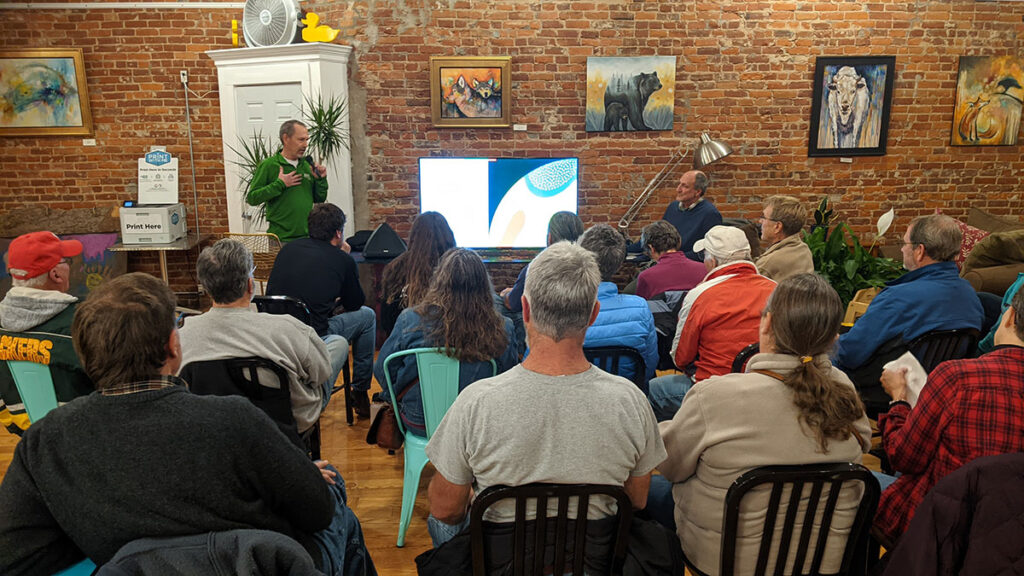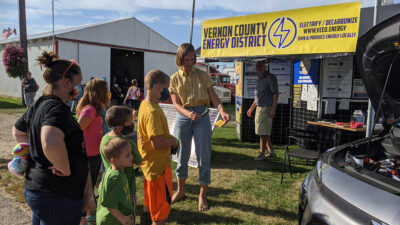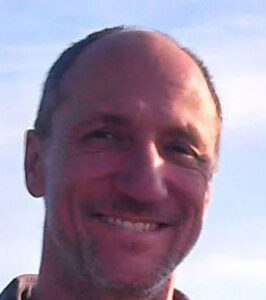success story
The Vernon County Energy District aims for clean, locally generated power
Bringing residents together for smarter energy

The Vernon County Energy District is spreading the word about energy: how to conserve, how to go green, and most of all, how to keep it local.
Organized in April 2020, on the 50th anniversary of Earth Day, the energy district is a “mostly-volunteer nonprofit,” says Alan Buss, president of the organization. Its mission is to educate and empower consumers about their power usage so Vernon County can have “100% locally owned, renewable energy by 2050.”
Facing challenges such as global warming, staying current with new technologies, and the economics of utility industries can be overwhelming, Buss says. “And the question is: What will work in Vernon County? We want to keep the solutions more local.”
Putting power in local hands
 The Vernon County Energy District is the first such organization in Wisconsin, Buss says, although there are a few in the state of Iowa. The concept is inspired by the Soil and Water Conservation Districts formed in the 1930s during the Great Depression and the Dust Bowl. When extended drought parched the fertile land of the Great Plains, residents realized they needed to develop local solutions that applied to their own soil and conditions—which might be different from those in other parts of the country. “Folks benefit when they feel a sense of ownership,” Buss says.
The Vernon County Energy District is the first such organization in Wisconsin, Buss says, although there are a few in the state of Iowa. The concept is inspired by the Soil and Water Conservation Districts formed in the 1930s during the Great Depression and the Dust Bowl. When extended drought parched the fertile land of the Great Plains, residents realized they needed to develop local solutions that applied to their own soil and conditions—which might be different from those in other parts of the country. “Folks benefit when they feel a sense of ownership,” Buss says.
A study by the University of Wisconsin-Madison’s Center on Wisconsin Strategies helped fuel the decision to form the energy district. The study, based on 2016 figures, said that of the $19.1 billion spent on energy in Wisconsin each year, $14.4 billion leaves the state to pay for fossil fuels produced elsewhere. Adding renewable energy sources, transitioning to electric vehicles (EVs), updating to more energy-efficient appliances, and reducing energy use could decrease harmful emissions, create jobs, and boost Wisconsin’s economy, the report said.
The Vernon County Energy District drafted a comprehensive energy plan in 2022. Its goals include:
- Converting home heating from natural gas and propane to electric heat pumps
- Weatherizing homes
- Transitioning to EVs and electric outdoor power equipment such as mowers
- Installing more EV chargers
- Developing community shared solar projects
- Seeking utility rate structures that promote using energy during non-peak times
Eight utility companies serve Vernon County’s 30,000 residents. The energy district is forging ties with utilities, local government leaders, residents, and businesses.
“We are definitely seeing a shift,” Buss says. Nearly a dozen residents made a group purchase of heat pumps last winter, and more electric vehicles are evident on area highways.
State grants offer assistance

Alan Buss, president of the Vernon County Energy District
The Vernon County Energy District provides home energy assessments to area residents, businesses, municipalities, and schools, with the help of a grant from the Wisconsin Public Service Commission. It can equip buildings with energy monitors to track usage on each circuit. The district’s team of volunteers also offers educational presentations and energy coaching, and informs consumers about tax credits and rebates.
A grant from WEDC’s new Thrive Rural Wisconsin program is allocating up to $25,000 to the energy district, along with two years of technical assistance in planning and grant writing. “We’re really excited to be working with them. They are helping us to develop a financial and business plan for the organization. It will take us to the next level of business planning, growth, and stability, and let us grow through the next five years,” Buss says.
The energy district is also working directly with local communities on proposals such as establishing a microgrid in La Farge that can be used during emergencies and installing solar panels and battery storage in Viola. Both villages were hard hit by floods that resulted in lengthy power outages in 2018.
Finding ways to improve the environment and the economy are important goals, says Buss, and at the same time, “we’re helping folks keep more money in their pockets.”
“The question is: What will work in Vernon County? We want to keep the solutions more local.”
